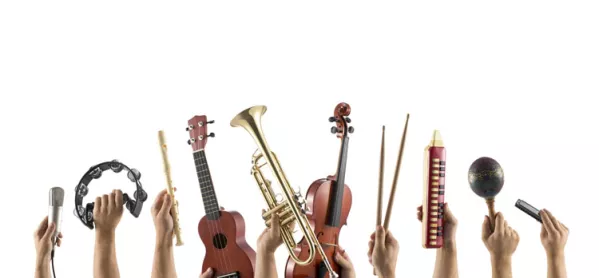- Home
- ‘Why I’m banging the drum for more music funding’
‘Why I’m banging the drum for more music funding’

As I frequently comment, it’s always pleasing to read a piece of research that reinforces what you’ve known intuitively. According to the Massachusetts Institute of Technology (MIT), reported this week on inews, “learning the piano can improve children’s language skills and could even be more beneficial than extra reading lessons”.
More specifically, the MIT research found that nursery school-age children receiving piano lessons develop an enhanced ability to distinguish different pitches and therefore to discriminate between spoken words. I noted that the children studied were Mandarin-speaking inhabitants of Beijing. This is probably of significance because, as we all know, Chinese is a tonal language, a higher or lower tone when spoken giving a word an entirely different meaning.
So impressed was the target school by the results that it determined to continue with the children’s piano lessons. Wow! If only primary schools in the UK could afford such a luxury.
No early years teacher will be surprised by this news. Concern about children being stuck in front of iPads or constantly playing on their phones, instead of talking (and listening) to their parents and siblings, is as old as the hills - or as Thomas the Tank Engine, at any rate. Teachers knew back in the old days (the 80s) that children whose parents used video-players as child-minders (nowadays it would be Peppa Pig online, I guess) were more likely to display deficient language skills.
It’s all about listening. You can’t do anything in music without listening, making it one of a variety of ways (and a particularly powerful one) of enhancing listening - and thus of growing language.
Music improves language skills
Though I’m a fan of piano lessons, it naturally doesn’t have to be the piano: any musical instrument or activity will help. It could be singing: it could be just responding (singing, clapping, moving, dancing) to music: people of my generation fondly remember those old BBC Radio Music and Movement programmes. Music is thus a particularly powerful tool for developing listening skills in the young, but it doesn’t have to take any one form.
The great thing about listening skills is that they don’t merely aid language. More generally, they support communication and socialisation: by that I mean children learning to listen and respond to one another; in other words to build social skills, to get on, to be aware of each other, to develop (dare I go this far?) empathy.
Would you believe, more developed listening skills might even help kids with phonics? It’s all about making and recognising sounds, whether or not one sees phonics as the Holy Grail in the teaching of reading in this country (I don’t, though I concede they have their uses for some readers, struggling with particular difficulties).
We’re back, once again, to the value of music. It’s not just a question of the billions that the music industry helps to create for this country. Nor is it about the need for creative thinking in the workforce of the future, and indeed for adults in their leisure time. Music isn’t the sole subject that helps to develop creativity in the young, but it’s an important one.
The evidence of music’s contribution to language acquisition underlines once more the need for well-taught music in schools, properly within the curriculum. Not as an adjunct but centrally, because (surely to the delight of policymakers?) it adds to the hard-edged, measurable outcomes of language and reading ability.
So, just in case those who make policy and starve the arts of funding in schools have missed the point, let’s bang the drum for this one. Who knows? Perhaps even ministers will find it music to their ears.
Dr Bernard Trafford is a writer, educationalist and musician. He is a former headteacher of the Royal Grammar School, Newcastle, and past chair of HMC. He is currently interim headteacher of the Purcell School in Hertfordshire. He tweets @bernardtrafford
Keep reading for just £1 per month
You've reached your limit of free articles this month. Subscribe for £1 per month for three months and get:
- Unlimited access to all Tes magazine content
- Exclusive subscriber-only stories
- Award-winning email newsletters



